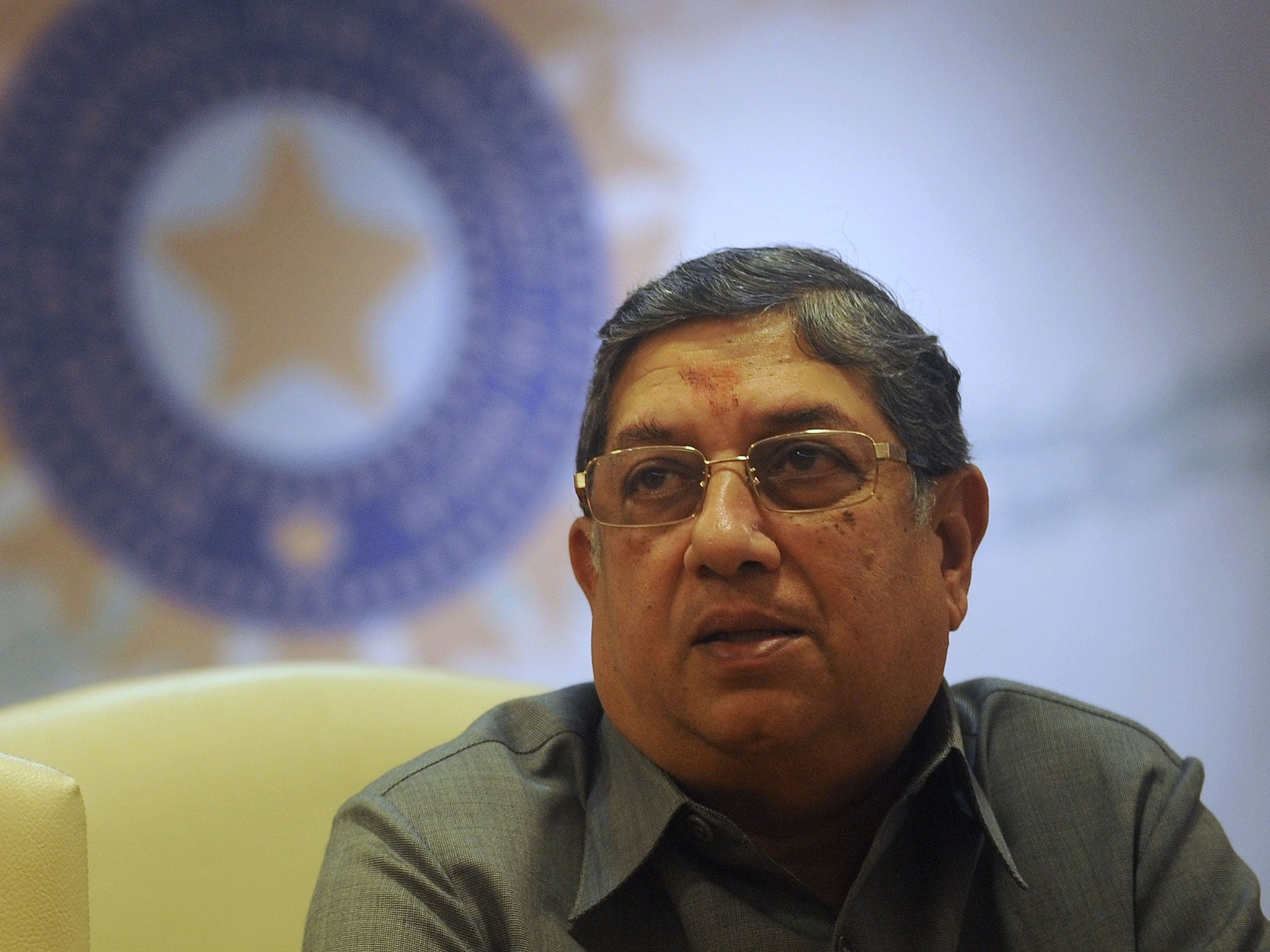Rajan's Wrong 'un: The fight against corruption in the IPL is a battle for the very soul of India
The structure of the IPL is a denial of the rights of equal citizenship

Your support helps us to tell the story
From reproductive rights to climate change to Big Tech, The Independent is on the ground when the story is developing. Whether it's investigating the financials of Elon Musk's pro-Trump PAC or producing our latest documentary, 'The A Word', which shines a light on the American women fighting for reproductive rights, we know how important it is to parse out the facts from the messaging.
At such a critical moment in US history, we need reporters on the ground. Your donation allows us to keep sending journalists to speak to both sides of the story.
The Independent is trusted by Americans across the entire political spectrum. And unlike many other quality news outlets, we choose not to lock Americans out of our reporting and analysis with paywalls. We believe quality journalism should be available to everyone, paid for by those who can afford it.
Your support makes all the difference.Continuing this column's minor obsession with corruption at the heart of the Indian Premier League – the chief source of cricket's future interest, revenue, membership and renown – I'm delighted to report that senior figures in the game appear to be taking responsibility for the scandal that has enveloped the sport in recent weeks.
IPL chairman Rajiv Shukla resigned over the weekend, less than 24 hours after the resignation of IPL secretary Sanjay Jagdale and treasurer Ajay Shirke. Yesterday, at a working committee meeting of the Board of Control for Cricket in India, president N Srinivasan said he would temporarily step aside.
Srinivasan's move is significant for three reasons. First, his on-going denial of involvement; second, because he is, absurdly, also managing director of the Chennai Super Kings' owners, Indian Cements; and third, because he is father-in-law to Gurunath Meiyappan, the Super Kings official arrested a fortnight ago for alleged betting. Three Rajasthan Royals players were also arrested for alleged spot-fixing.
The resignations of India's leading cricketwallahs, though not an admission that culpability goes right to the top, is a pleasant surprise. Social media has had a decisive impact in promoting the intolerance of fans, allowing them both to organise protests and vent their fury in 140-character bursts – and so terrify officialdom about the prospect of lost future earnings.
Indeed, on Twitter, in the blogosphere, and across the Indian media, there is something else going on here: a sense that we have entered a battle not just for the soul of cricket, but of India too.
To that end, a few weeks ago I had the privilege of dinner with Ramachandra Guha, the foremost living historian of India, whose A Corner of a Foreign Field is the best book on cricket since Beyond a Boundary by C L R James.
Ram boycotts the IPL on the grounds that "it isn't just corrupt from top to bottom, but side to side too". Astonishingly, an estimated seven out of nine IPL team owners are being investigated in one country or another for a financial offence of some sort. And now I see that Ram has written a column for The Kolkata Telegraph which, having been reproduced by espncricinfo.com, has gone viral.
Here is the central charge: the IPL is "a tamasha [festival] for the rich and upwardly mobile living in the cities of southern and western India. Rural and small-town India were largely left out, as were the most populous states. That Uttar Pradesh and Madhya Pradesh, both of whom have excellent Ranji Trophy records, had no IPL team between them, while Maharashtra had two, was symptomatic of the tournament's identification with the powerful and the moneyed." He goes on: "The entire structure of the IPL was a denial of the rights of equal citizenship that a truly 'national' game should promote. The IPL is representative of the worst sides of Indian capitalism and Indian society. Corrupt and cronyist, it has also promoted chamchagiri [sycophancy] and compliance."
Ram would have the IPL abolished completely, in favour of a beefed-up version of the Syed Mushtaq Ali Trophy, played between state sides. My sense is this won't happen, because the financial momentum behind the IPL is so great.
But the above argument is a fascinating complement to the one I advanced last week, when I said if there is hope for cricket, it lies with the fans. Here, amid resignations and scandal at the top of IPL, we have the pre-eminent historian of modern India arguing that this league is not only a betrayal of cricket's founding virtues, but also of the very idea of modern India – a democratic republic founded, amid the embers of partition, in a spirit of national unity.
I'll revisit this fruitful theme in coming weeks.
twitter.com/amolrajan
Join our commenting forum
Join thought-provoking conversations, follow other Independent readers and see their replies
Comments